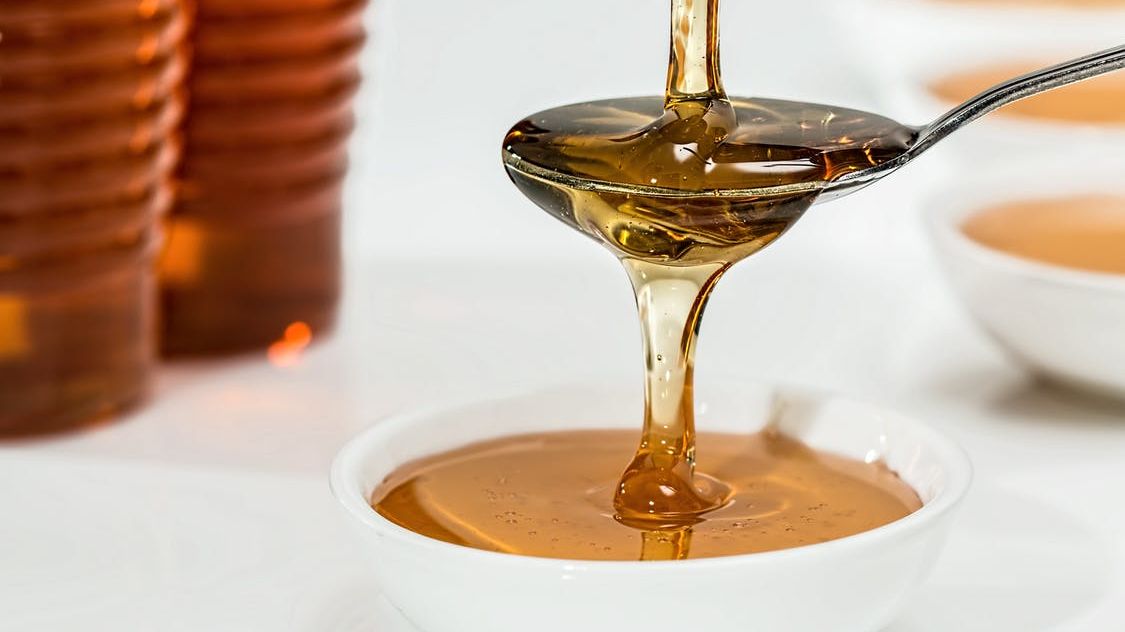Sugar

Pregnant women – along with most non-pregnant Americans – consume too much sugar. Excess sugar is linked to numerous health problems during pregnancy, especially those at risk for gestational diabetes or heart problems.
However, near or total elimination of sugar is not realistic, nor is it recommended. Women should consider their overall diet throughout pregnancy, avoid added sugars in beverages and snacks, and aim for as much nutrition as possible with each meal.
Pregnant women should enjoy their favorite foods and meals in moderation, understanding that balance is key, and talk to their health care provider (HCP) if they have any concerns.
Women at risk for, or diagnosed with, diabetes or gestational diabetes may have to follow very specific guidelines, and should talk to their HCP with any questions regarding their condition and diet.
Women should read below to learn more about how excess sugar can affect their pregnancy.
Background
With cardiovascular disease and diabetes increasing among pregnant women, excess dietary sugar during pregnancy is a concern, as it is strongly linked to both conditions. The American Heart Association (AHA) recommends Americans, in general, drastically cut back on added sugar.
“Added sugar” is intensely debated in research literature. Some authors believe that added sugar is the main culprit in diabetes, obesity, and cardiovascular disease, while others believe these conditions are due to the overall diet, not one sole factor. Debate also exists among the different types of sugar, and whether sugar in fruits and vegetables should be treated the same as table sugar.
Naturally occurring sugars (also called “intrinsic”) are found in milk (lactose) and fruit (fructose). If a product has no fruit or milk products in the ingredients, all of the sugars in the food are from added sugars.

The body metabolizes all sugars the same way, regardless of what “form” the sugar is in. However, while some fruits have a high natural sugar content, they have many benefits such as vitamins, minerals, and fiber that outweigh the sugar content.
Most added sugar comes from processed and prepared foods, the worst being sugar-sweetened beverages and breakfast cereals; one can of soda can have up to 10 teaspoons of sugar.
The average American consumes 22 teaspoons of added sugar a day, which amounts to an extra 350 calories (4 grams of sugar = 1 teaspoon).
There is no nutritional need or benefit that comes from eating added sugar. There, the AHA suggests a limit of 6 teaspoons or 24 grams of added sugar for most women. No additional specific limits have been given for women during pregnancy.
Pregnancy
Researchers have hypothesized that added sugar in a mother’s diet could be a potential cause of increased disease prevalence in young children, such as allergies, asthma, metabolic issues, and skin conditions. Sugar consumption during pregnancy may also contribute to increased gestational weight gain, gestational diabetes, preeclampsia, and preterm birth.
Excess sugar in the blood (glucose) can be harder to regulate during pregnancy. Beginning early in pregnancy, and getting progressively worse until term, pregnant women experience a state of insulin resistance.
Hormones from the placenta essentially block the action of insulin, which means the pancreas has to make even more insulin to regulate glucose in the blood. If this does not occur correctly, gestational diabetes can develop. Additional excess sugar in the diet can make it even harder for the pancreas/insulin to do its job (read Gestational Diabetes).
However, it has been suggested that in normal, healthy pregnancies, women should not focus on restricting or limiting their sugar intake, but should focus instead on the quality of their overall diet, with intakes of fat and sugar derived from food sources that provide numerous other nutrients.
Women can enjoy their favorite foods in moderation, but should aim to be as healthy as possible with each meal, get plenty of exercise, stay properly hydrated, and talk to their HCP if they have any questions or concerns.
Food Sources
Most individuals in the United States obtain sugar from sugar-sweetened drinks, cookies, candy, baked goods, cereals, pastries, as well as some forms of yogurt and other dairy products.

The Nutrition Facts Label lists the grams of added sugar in each product. Reading the ingredient list on a processed food’s label will also indicate if the product contains added sugars.
Food manufacturers may use multiple forms of sugar– each with a different name – and list each one individually on the nutrient label.
Additional names for sugar include:
Agave nectar
Brown sugar
Cane crystals
Cane sugar
Corn sweetener
Corn syrup
Crystalline fructose
Dextrose
Evaporated cane juice
Fructose
Fruit juice concentrate
Glucose
High fructose corn syrup
Honey
Invert sugar
Malt syrup
Maltose
Maple syrup
Molasses
Raw sugar
Sucrose
Syrup
Food items with a “No Added Sugars” or “Without Added Sugars” means no sugars or sugar-containing ingredient such as juice or dry fruit was added during processing.

Action
Women experiencing normal, healthy pregnancies should not necessarily focus on restricting or limiting their sugar intake, but should focus instead on the quality of their overall diet, with intakes of fat and sugar derived from food sources that provide numerous other nutrients.
Pregnant women should also enjoy their favorite foods in moderation, engage in regular physical activity, stay hydrated, monitor their weight gain, and talk to their HCP if they have any questions or concerns.
Unless specifically directed by their HCP, women do not need to replace their sugar with artificial sweeteners. However, artificial sweeteners are considered safe during pregnancy, even when routinely consumed in beverages or other food items.
Resources
Added Sugars (American Heart Association)
Know Your Limit for Added Sugar (U.S. Centers for Disease Control and Prevention)